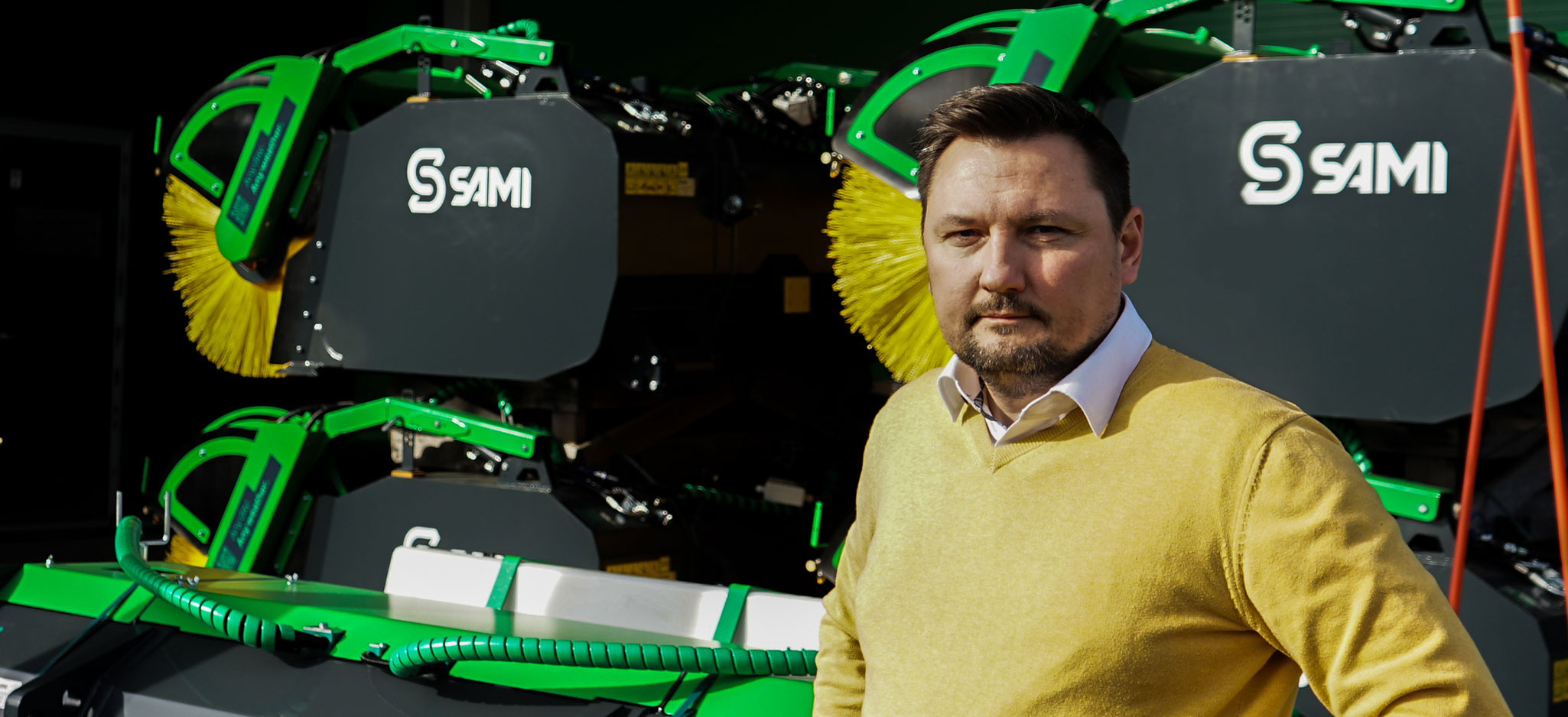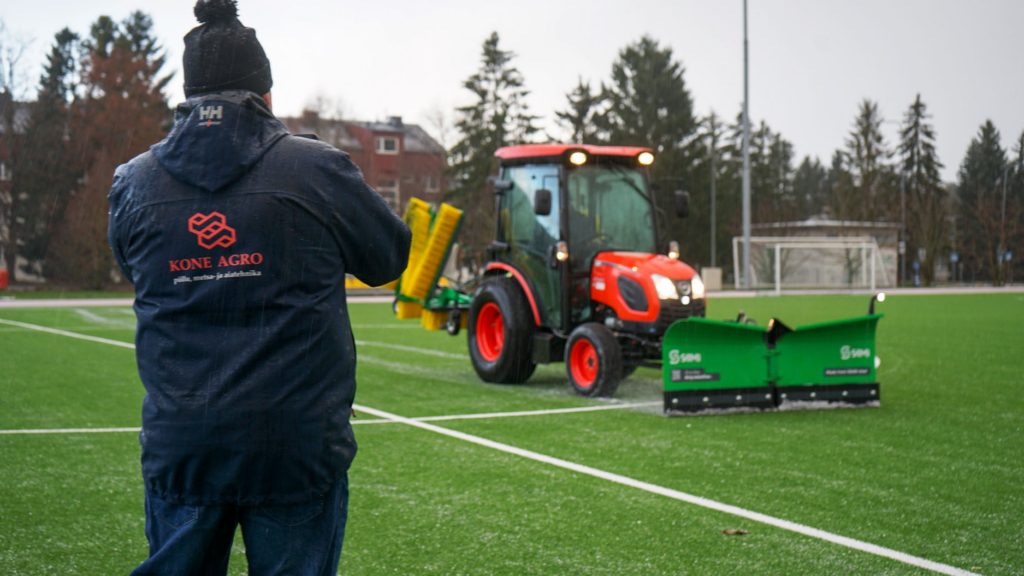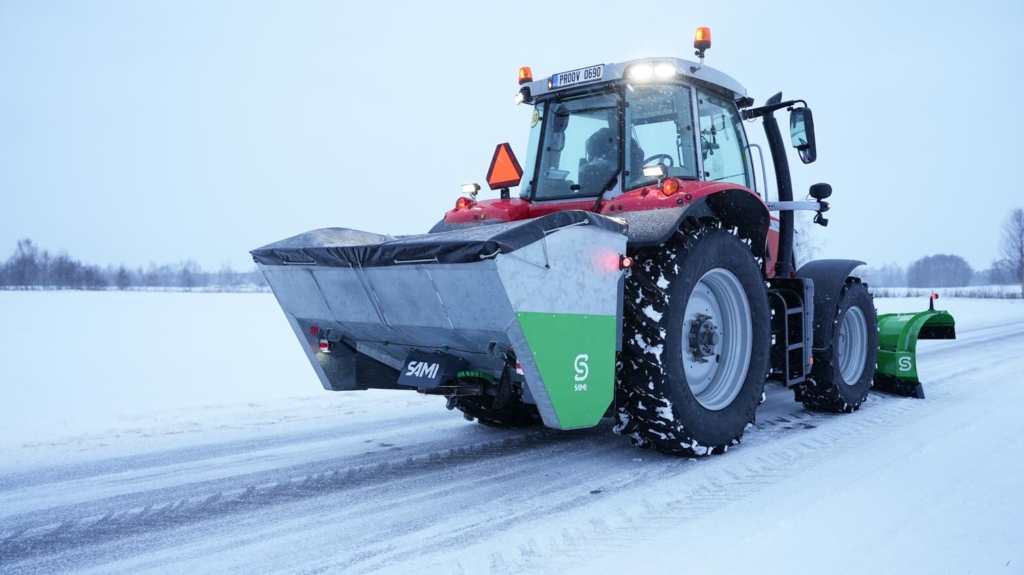Industry manager’s experience: direct communication with customers helped exports out of the doldrums
In order for the Estonian manufacturing industry to regain competitiveness in our key export markets in Scandinavia, companies need to find a new trump card to beat their competitors, writes Villu Valm, CEO of road maintenance machinery manufacturer SAMI Machinery. Their company was able to get exports going again when it started communicating directly with customers on the ground.

This is a crucial time for Estonian manufacturing companies. Our companies no longer have a competitive advantage in the form of lower prices in our main export markets, and the Scandinavian economies are not doing the best. Anyone with a connection to the construction sector there is going out of business. Hence the 12 per cent year-on-year fall in manufacturing output in January. This does not mean that there are only dark clouds over all Estonian industry. There are rays of light here and there.
While there is no sign of any easing in the situation in the construction sector, the outlook for exports in the wider engineering industry is much more positive, including to the Swedish and Finnish markets. About a year and a half ago, we too felt that road maintenance machines made in Estonia had lost their competitive edge on the Scandinavian market. The warehouses of paint manufacturers were full of our products and no new orders were coming in. It was a turning point for our company and a wake-up call, when we realised that we could no longer continue with our current strategy.
Unlike in Estonia, in the Nordic countries the principle is very deeply rooted that when buying a product or service, the first choice is always a domestic company. This is the basis for procurement by the state, municipalities and private companies. You have to be 20-30% better than local producers in order for your product to be considered at all. In addition, in the road maintenance machinery sector, many Swedish and Finnish companies are also internationally big players and technologically advanced.
For their customers, the advantage of Estonian-made road maintenance machines was, until now, above all the 20-30% lower price. Now that all input prices and labour costs have skyrocketed and energy prices are higher than in neighbouring countries, our industries no longer have such a selling point.
However, SAMI Machinery had one trump card in its pocket. We had invested heavily in automation in our factories in previous years, and had built up a high-tech production facility that would give many of our Nordic competitors a run for their money. In addition, we had introduced fossil-free, high-quality Swedish steel and highly valued road maintenance components from world-class manufacturers. This gave us several new sales arguments and created a good basis for product development.
The only problem was that our target markets were largely unaware of the company’s new capabilities, just as we were unaware of our end customers. SAMI Machinery has a very strong network of importers and distributors in Finland and Sweden. Unfortunately, the dealers also sometimes had an outdated understanding of the position of SAMI’s products. When this knowledge came to us, we realised that the key to changing the situation was to communicate with business partners and customers on the ground.
You will not be able to get the full picture of what the end customer really thinks of your product through an importer. Unless there is something fundamentally wrong with the product, no one is going to come to you to tell you their problems and their joys. A normal customer survey does not draw out the pros and cons of the product and you will miss the real expectations of the customer. After all, it’s not the plough or the thresher that matters to him, but a well-maintained road. In order to get a user of your saw or street sweeper to share their experience, you have to go to them. That’s what we did, and it’s been very useful so far.
Firstly, we have gained important insights into the performance of our products, and we have already improved a number of machines as a result. Secondly, we have gained the trust of our customers by taking the trouble to visit them to see how they work and if we can be of more help. With this step, we gained a new competitive advantage, which allows us to outperform local manufacturers in Finland and Sweden by 20-30%.
Last year, the importers’ warehouses were sold out, and by the end of 2023, SAMI Machinery set a new sales record in both the Finnish and Swedish markets. It is true that the experience so far and the general economic situation have also made us cautious, and at the beginning of the current brush season, the factory’s stock levels are modest in order to be able to immediately satisfy all customer orders with ready-made products.
Personalised communication with end customers helped our company to regain its footing in foreign markets.
The value of a brand is determined by credibility, and personalisation plays an increasingly important role in achieving this. Based on SAMI Machinery’s experience, I would advise Estonian manufacturing companies to communicate more directly with their export customers. This has many benefits and gives them an advantage over their competitors.


